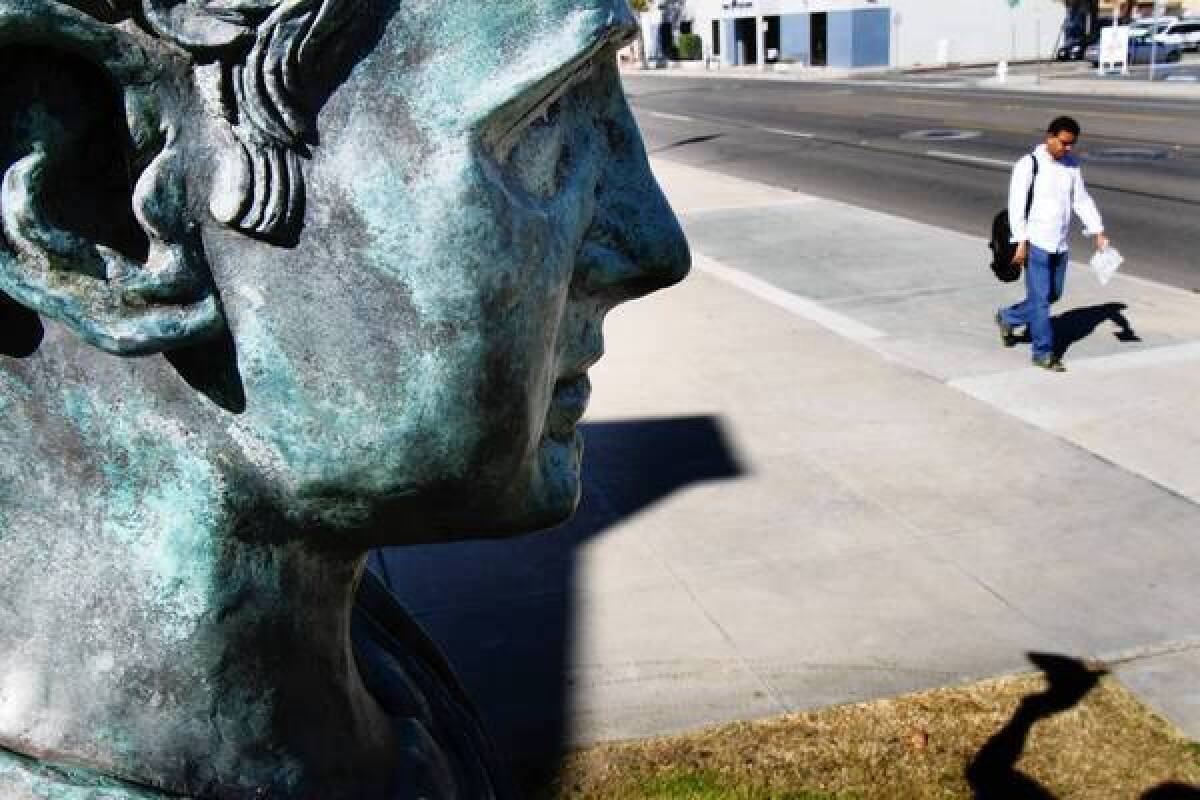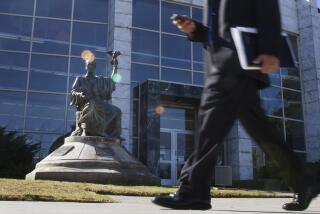Answers sought in 1985 slaying of Palestinian activist Alex Odeh

Nearly three decades after Alex Odeh, a Palestinian American civil rights leader, was killed when a pipe bomb ripped apart his Santa Ana offices, the slaying remains unsolved.
At the time, the White House condemned the killing as an act of terrorism. The FBI told Congress that solving the killing was one of its highest priorities.
Now, civil rights groups and members of Congress, including Rep. Loretta Sanchez (D-Santa Ana), are calling on the FBI to do more to solve the 1985 case.
“I believe the Odeh family deserves closure,” the Orange County congresswoman wrote in a letter to Atty. Gen. Eric Holder this year.
Odeh was born in what was then the British mandate of Palestine, but his family left to escape the violence and he became a naturalized American citizen. He settled in Orange County, where he was a vocal critic of Israeli policies against Palestinians. He became regional director of the American-Arab Anti-Discrimination Committee, a civil rights organization founded by former U.S. Sen. James Abourezk (D-S.D.) in 1980.
Odeh was dedicated to seeking common ground with members of other religious and ethnic communities, said Richard Habib, a retired businessman and former board member of the ADC. On the day Odeh was killed, he was scheduled to speak at a synagogue in Fountain Valley.
“Alex was really a pioneer in trying to move people on both sides, on many sides, of this conflict toward dialogue, toward conversation,” said Rabbi Lynn Gottlieb, a Freeman Fellow with the Fellowship of Reconciliation, a New York-based peace group.
“And he paid with his life for that.”
About one year into the investigation, an FBI official told a congressional subcommittee that Jewish extremists were suspected in the bombing. Then-Assistant FBI Director Oliver B. Revell said the agency had identified suspects in the case whom its agents were pursuing. But no charges were ever filed.
Over the years, law enforcement sources have said the investigation focused on onetime members of the militant Jewish Defense League. One potential suspect is now serving life in prison in California for another bomb slaying. Others live in Israeli settlements in the West Bank.
In 1996, the FBI offered a $1-million reward for information that would help solve the Odeh crime. In 2005 and again in 2010, it publicized the reward. But nothing came of the efforts.
All the while, Sami Odeh, the victim’s brother, did his best to keep the case from being forgotten.
“The entire trauma, the mechanics of how to deal with it, the newspapers, the burial and everything else went to Sami,” Habib said.
When Sami Odeh died in June, never having known who killed his brother, many of his friends and fellow advocates felt they owed it to him to push the investigation forward, said Raed Jarrar, director of communications and advocacy at the ADC.
The ADC has teamed with the National Assn. for the Advancement of Colored People and Jewish Voice for Peace, an Oakland-based group, to launch a petition asking the Justice Department to bring Odeh’s killers to justice.
Additionally, Sanchez and Rep. John Conyers Jr. (D-Mich.) are urging the department to step up its investigation.
Sanchez is seeking signatures from members of Congress on a letter that will ask the Justice Department for specific details about the case, including possible suspects and steps taken to interview them.
Conyers, ranking member of the House Judiciary Committee, said he will sign the letter and may ask for a congressional hearing on the case.
ALSO:
Motorist arrested in fatal accident in Palmdale area
BART workers gather for vigil for those killed in train accident
Surfers, bodysurfers battle over Newport Beach’s iconic Wedge
More to Read
Sign up for Essential California
The most important California stories and recommendations in your inbox every morning.
You may occasionally receive promotional content from the Los Angeles Times.











